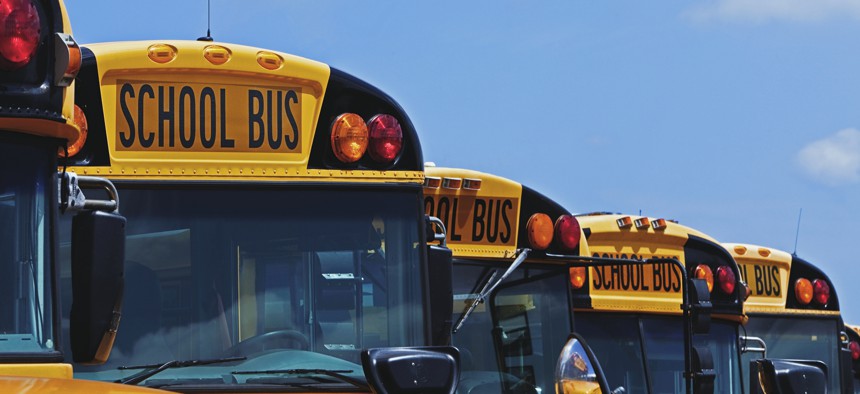School bus Wi-Fi qualifies for E-Rate, FCC chair says

Mint Images / Getty Images
Federal Communications Commission Chairwoman Jessica Rosenworcel said broadband on school buses has been especially helpful in closing the homework gap.
To help close the homework gap, Federal Communications Commission Chairwoman Jessica Rosenworcel proposed allowing use of federal E-Rate funding for Wi-Fi in school buses during a May 11 meeting of the National Coalition for Technology in Education & Training.
For more than 20 years, the E-Rate program has allowed eligible schools and libraries to request universal service support for telecommunications and internet services to and within schools and libraries. But when COVID-19 forced schools to move to virtual learning, students without reliable, high-speed internet at home were left behind.
To address that disconnect Congress created the Emergency Connectivity Fund (ECF), a temporary relief program that covered reasonable costs of laptops and tablets, Wi-Fi hotspots, modems, routers and broadband access for off-campus use by students, school staff and library patrons.
ECF has already committed more than $35 million for the purchase of Wi-Fi hotspots and broadband on school buses, which has been especially helpful for rural students without broadband at home. In Sand Springs, Oklahoma, for example, students were able to complete their assignments on the ride to and from school. Plus, the buses were parked overnight in neighborhoods where connectivity is lacking, so local kids had more opportunity to complete their homework, Rosenworcel said.
Now that ECF is winding down, Rosenworcel wants to make Wi-Fi for school buses eligible for E-Rate funding.
Rosenworcel’s declaratory ruling, if adopted, would allow E-Rate funding to be used for Wi-Fi, or similar access point technologies, on school buses. Because the wireless access serves an educational purpose, it qualifies for the funding, she said.
“While we’ve made progress getting many more families connected through our various broadband funding programs, the homework gap is still a hard fact of life for millions of schoolchildren in urban and rural America,” Rosenworcel said in a release. “Wiring our school buses is a practical step we can take that is consistent with the history of the E-rate program. This commonsense change could help kids who have no broadband at home.”
According to the draft declaratory ruling, the potential impact of funding Wi-Fi on school buses would be limited compared to the benefits reaped by students. Additionally, the E-Rate program has been substantially lower than the funding cap in the last several years, the FCC said.
The draft ruling directs the FCC’s Wireline Competition Bureau to include funding Wi-Fi on buses in establishing E-Rate eligible services for the upcoming funding year.






